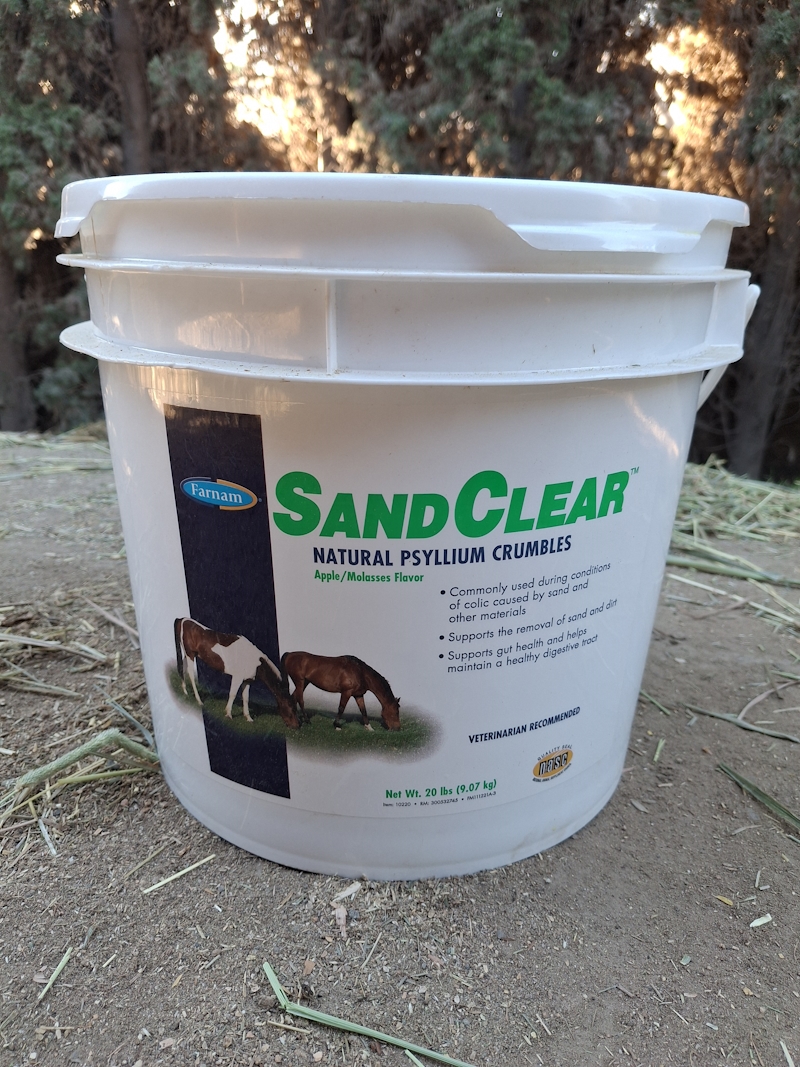Sand Colic
In Southern California, a common cause of colic is due to the build-up of sand in the horse’s intestinal tract due to the area’s sandy ground. The movement of the sand can cause irritation to the lining of the horse’s intestine, and over time, can cause problems for your horse including chronic bouts of colic, diarrhea, and weight loss.
When evaluating a horse for colic, your veterinarian will listen not only for the presence and frequency of ‘gut sounds’ that indicate gut motility, but they will also listen for the presence of sand. By the time your veterinarian can hear sand on a horse, however, they may have more than 20 pounds of sand built up in their intestinal tract.
Sand is most definitively diagnosed on abdominal radiographs, which have to be taken in a hospital setting.
Managing and preventing the build-up of sand can be a lot easier than dealing with the resulting problems of having a horse full of sand. Sand colic can be severe, and can sometimes lead to hospitalization for aggressive psyllium sand treatment, and in some cases, colic surgery.
Some management practices to help minimize your horse’s sand intake include feeding hay off the ground (either in a hay net and/or in a feed bin or tub), and feeding on rubber mats.
Regular psyllium treatments are another excellent method of managing sand. Psyllium helps to bind to any sand present in the intestinal tract and aids in the passage of the sand in the horse’s manure. Most commercially available products recommend feeding psyllium one week of the month, every month.
